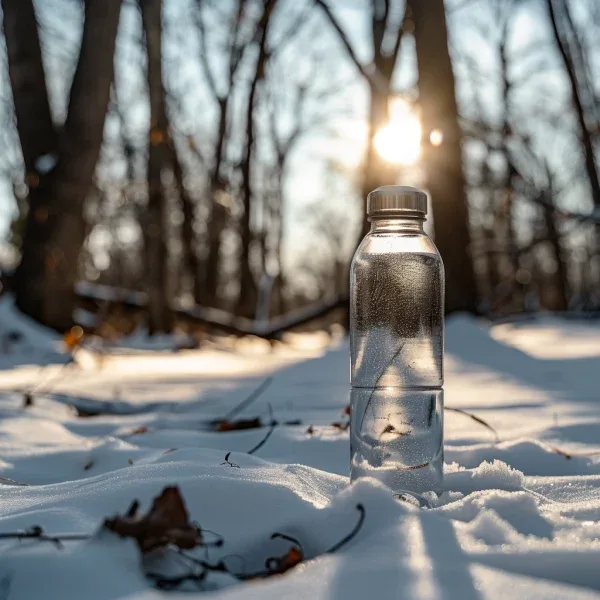by Clarissa Hartley

Ever hit a wall of fatigue and fogginess while maintaining your winter fitness regime? This could be a sign you aren’t taking in enough fluids. Our bodies are made up of about two-thirds water; a small decrease in this balance can lead to dehydration, even during the chilly months.
Relaxing our vigilance about hydration in winter is common. Juxtapose sipping icy water to quell the summer heat with downing it in the snowy winter. It is no wonder our water consumption decreases in the cooler months. However, staying hydrated during the winter workouts is just as crucial.
Understanding Dehydration in Winter
As the temperature drops, our perception of thirst decreases, leading to insufficient fluid intake. According to Emma Frost, a top-notch nutrition expert, “Training in colder temperatures requires just as much hydration. However, many don’t associate cold weather with dehydration due to the brain’s perception of thirst.”
A study conducted at the Metropolis University proved this, indicating that our bodies don’t have the same thirst-triggering response during winter as they do in summer. Yet, we lose water through sweat that evaporates quickly in dry, cold air and breathing. Overdressing during winter workouts can also lead to excess sweat and increased dehydration.
Warning Signs to Look Out For
What are the telltale signs of dehydration? Beginning with the common feeling of thirst, other indicators include a dry mouth and lips. Dr. Lauren Stanley, a renowned emergency doctor and co-founder of a highly credible medical practice, highlights, “In attempts to conserve water, your body may change its normal patterns. Urine may darken in color, and the frequency of bathroom visits can decrease. As the dehydration intensifies, feelings of lethargy, confusion, or dizziness may creep in.”
Meeting Your Daily Water Intake
The recommended average daily water intake stands at 2 liters. However, this approximation can vary due to factors such as body weight, activity levels, environmental temperature, medication, and caffeine intake. We must adjust our water intake based on our body’s needs during the snowy season’s workout blues.
The body’s requirement for water also depends on weight – roughly 30ml per kilogram of weight. So, a person weighing 50 kg would need to drink 1.5L of water per day, while an 80 kg person requires 2.4 L. Remember, the water content in various foods, particularly fruits and vegetables, contributes to your daily water requirements.
winter workouts, hydration, staying hydrated, dehydration, water intake, daily water intake, drinking in winter, winter dehydration, body’s water requirement, cold weather dehydration, adequate fluid intake, drinking enough in winter, preventing dehydration in winter
Leave a Reply